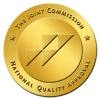Sharing Your Recovery Story
Sarah took a deep breath, then set down her coffee cup. “You know how I’ve been canceling plans a lot lately?” she asked her friend, Jess. “Well, there’s a reason. I’ve been struggling with anxiety, and it got so bad I could barely leave my house. But I’ve been seeing a therapist for the past few months. I’m learning to manage my symptoms and challenge my negative thoughts. I wanted you to know because your support means a lot to me, and I hope you can understand why I’ve been distant.”
~
Mark sat down with his sister after dinner. “Kate, there’s something I need to tell you,” he said. “I’ve been in recovery for alcoholism for the past eight months. It wasn’t easy to admit I had a problem, but after I nearly lost my job, I knew I needed help. I’ve been attending AA meetings and working with a therapist to treat my depression. I wanted you to know because I value our relationship. I hope you can be patient with me as I continue this journey.”
~
If you’ve been in treatment for a mental health condition or substance use disorder, you know how important it is to have a strong support system. Sharing your story with the people you care about can help you build that network, but it’s completely natural if you’re feeling a bit apprehensive about opening up. In this post, we’ll discuss some general tips to consider and offer advice to help you navigate sharing with specific groups of people in your life.
What to Consider as You Prepare to Share Your Story
Your recovery journey is yours to share on your own terms—and you have the right to privacy and respect throughout the process. Here are some tips to help you determine the best way to proceed:
- Embrace the ongoing nature of recovery. Remember that recovery is often a lifelong journey. It’s okay to share your story even if you’re still facing challenges. Nobody expects you to have all the answers.
- Prioritize your well-being. Sharing your story can be emotionally taxing. Ensure you’re in a stable place in your recovery before opening up. Be prepared for potential emotional reactions—both from yourself and your audience.
- Be honest, but don’t be afraid to set boundaries. Honesty is crucial when sharing your recovery story, but you don’t have to disclose everything. Decide in advance what aspects of your experience you’re comfortable sharing and what you’d prefer to keep private.
- Be mindful of possible triggers for your audience. When discussing sensitive topics, be aware that certain details might be triggering for others. Consider providing content warnings if appropriate and try to avoid graphic descriptions of harmful behaviors.
- Be prepared for questions. If you’re sharing in a format that allows for interaction, be ready for questions. However, it’s okay to say, “I’d rather not discuss that,” if a question makes you uncomfortable.
- Make time for self-care afterward. Sharing your story can be emotionally draining. Have self-care strategies in place for after you share, such as talking with a trusted friend, taking a soothing bath, meditating, or scheduling a session with your therapist.
Tips for Sharing Your Story With Specific Groups
Each audience you choose to share your story with may require a different approach and level of detail. Here are some tips to guide these conversions:
- Sharing with family members. Try to remain patient and understanding, especially if mental health or addiction issues run in your family. Your siblings, parents, and other relatives may believe in mental health myths that perpetuate stigma, wonder if you’re blaming them for your issues, or struggle with their own need for treatment. Communicate what kind of support you need and what behaviors are unhelpful, then take steps to enforce your boundaries.
- Sharing with friends. Typically, it’s best to first share with close friends who have shown support in the past and then work on sharing your story with others in your social circle. If your recovery involves lifestyle changes such as no longer going to bars or nightclubs or avoiding certain people who encourage negative behavior, explain how this might affect your social interactions. Your goal is to create an open dialogue where friends feel comfortable asking questions about your experience, but don’t feel as though you need to share every detail.
- Sharing in the workplace. Before you reach out to anyone in your workplace, think about whether your workplace is supportive of mental health and addiction recovery discussions. Discuss your rights and any workplace accommodations you might need with HR, then start sharing with your immediate supervisor. Focus on relevant information that is necessary for understanding any work-related impacts of your recovery until you feel confident you’ll be greeted with the acceptance and understanding that you deserve.
- Sharing with romantic partners. It’s not necessary to share in the early stages of a relationship, but being honest about both the challenges you face and the progress you’ve made in your recovery is important for a long-term, committed partnership. Explain specific ways your partner can support your ongoing recovery, address any intimacy concerns they might have, and encourage them to make time for their own self-care.
We’re Here to Support You Through Every Stage of Your Recovery
At Eagle View Behavioral Health, we believe that no one should have to struggle alone. Our Bettendorf, Iowa facility offers a full range of treatment programs, including services for both adolescents and adults. Contact us today to schedule a free, confidential assessment.






